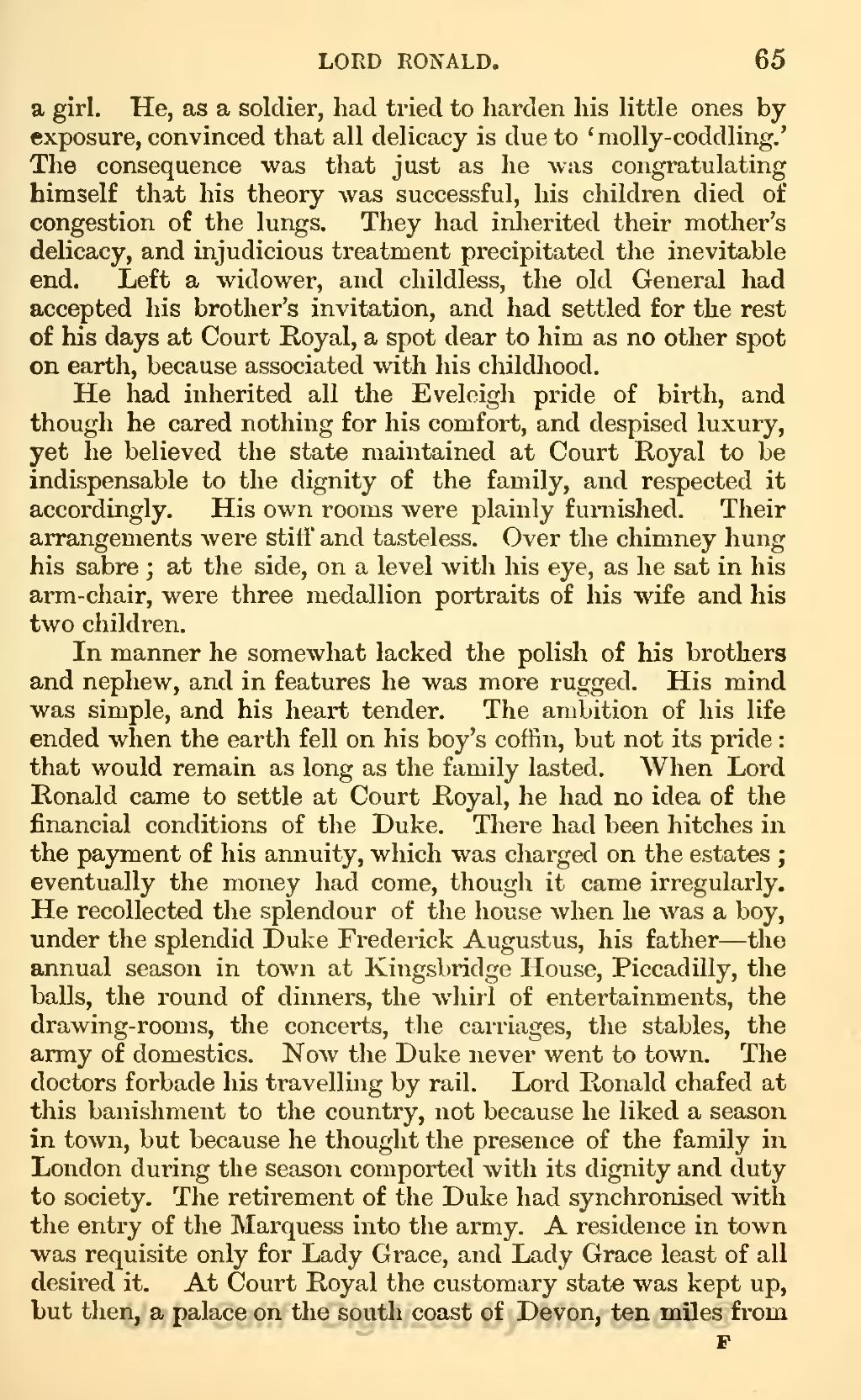a girl. He, as a soldier, had tried to harden his little ones by exposure, convinced that all delicacy is due to ‘molly-coddling.’ The consequence was that just as he was congratulating himself that his theory was successful, his children died of congestion of the lungs. They had inherited their mother’s delicacy, and injudicious treatment precipitated the inevitable end. Left a widower, and childless, the old General had accepted his brother’s invitation, and had settled for the rest of his days at Court Royal, a spot dear to him as no other spot on earth, because associated with his childhood.
He had inherited all the Eveleigh pride of birth, and though he cared nothing for his comfort, and despised luxury, yet he believed the state maintained at Court Royal to be indispensable to the dignity of the family, and respected it accordingly. His own rooms were plainly furnished. Their arrangements were stiff and tasteless. Over the chimney hung his sabre; at the side, on a level with his eye, as he sat in his arm-chair, were three medallion portraits of his wife and his two children.
In manner he somewhat lacked the polish of his brothers and nephew, and in features he was more rugged. His mind was simple, and his heart tender. The ambition of his life ended when the earth fell on his boy’s coffin, but not its pride: that would remain as long as the family lasted. When Lord Ronald came to settle at Court Royal, he had no idea of the financial conditions of the Duke. There had been hitches in the payment of his annuity, which was charged on the estates; eventually the money had come, though it came irregularly. He recollected the splendour of the house when he was a boy, under the splendid Duke Frederick Augustus, his father—the annual season in town at Kingsbridge House, Piccadilly, the balls, the round of dinners, the whirl of entertainments, the drawing-rooms, the concerts, the carriages, the stables, the army of domestics. Now the Duke never went to town. The doctors forbade his travelling by rail. Lord Ronald chafed at this banishment to the country, not because he liked a season in town, but because he thought the presence of the family in London during the season comported with its dignity and duty to society. The retirement of the Duke had synchronised with the entry of the Marquess into the army. A residence in town was requisite only for Lady Grace, and Lady Grace least of all desired it. At Court Royal the customary state was kept up, but then, a palace on the south coast of Devon, ten miles from
